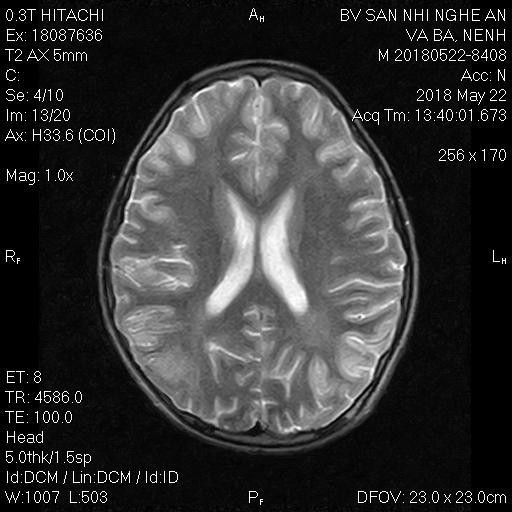11-year-old boy suffers severe brain damage after drinking 1 liter of alcohol
(Baonghean.vn) - On May 25, Dr. Nguyen Hung Manh, Head of the Department of Intensive Care and Anti-Poisoning at Nghe An Obstetrics and Pediatrics Hospital, said that the hospital is actively treating an 11-year-old patient with alcohol poisoning, in a deep coma.
Doctor Manh said: On May 11, the Department received patient VBN (11 years old) from Ky Son, Nghe An, hospitalized in critical condition due to alcohol poisoning.
Doctor Manh recounted: According to the patient's family, while everyone was away, he and a group of friends invited each other to drink alcohol. Because his friends challenged him, VBN drank more than 1 liter of alcohol.
 |
| Baby N. is being treated at the hospital. Photo: Thu Hien |
After drinking alcohol, the patient had impaired consciousness, agitation, difficulty breathing, severe vomiting, continuous fever of 39 degrees, coma, and lethargy.
Previously, the child was treated at the district hospital but did not improve. The patient was transferred to Nghe An Obstetrics and Pediatrics Hospital for further emergency care and treatment.
 |
| The brain of VBN patient showed severe damage as seen in magnetic resonance imaging (MRI). Photo: Thu Hien |
The doctor said that up to this point, after more than 10 days of treatment, the patient is still in intensive care and has been transferred to the Department of Neurology - Rehabilitation for further monitoring and treatment.
However, the prognosis of the case is still very cautious, the patient is still in a deep coma, with respiratory and circulatory failure, metabolic disorders, and severe damage to the brain's nervous system.
According to Dr. Manh, for young children, drinking stimulants such as alcohol will affect the liver, stomach, and immune system. After drinking alcohol, the capillaries will dilate, the heat dissipation capacity will increase, making children susceptible to colds and pneumonia. Alcohol and beer can disrupt the child's development and cause many effects on later reproductive function for both men and women.


